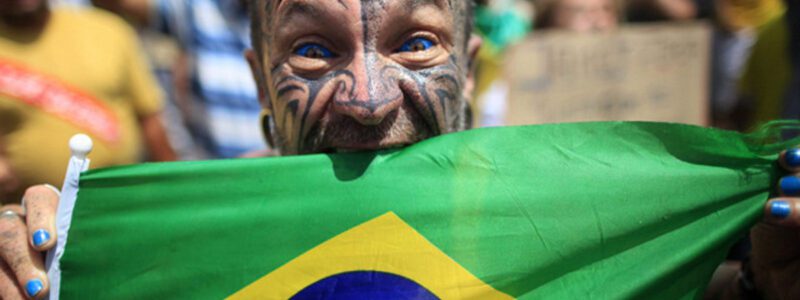
Citizens of Brazil on Sunday will vote in a general election, which will determine the new president and vice president of the country, the composition of the National Congress (parliament), governors, lieutenant governors and deputies of state legislatures.
The main attention is riveted to the election of the head of state. Seven candidates are vying for the post, but two have the most support among the Brazilian population: incumbent President Jair Bolsonaro and former President Luiz Inacio Lula da Silva. Bolsonaro is a right-wing politician, while Lula da Silva represents the left.
According to the latest Datafolha poll before the vote, Lula da Silva could get 50% of the vote in the first round, and Bolsonaro – 36%. The remaining votes were distributed among five more candidates. Observers note that it cannot be ruled out that Lula da Silva, despite a large lead over Bolsonaro, will not be able to achieve election in the first round.
To win in the first round, a candidate needs to get more than 50% of the votes. If this fails, then a second round is held between the two strongest candidates.
Lula da Silva is 76 years old, he was previously going to take part in the 2018 elections, but he could not do it, as he was convicted and ended up in prison. Despite this, the Brazilians continued to have sympathy for him, and, judging by the polls, even behind bars, Lula da Silva remained the most popular politician in the country.
As a result, the Brazilian Workers’ Party nominated Fernando Addada as a presidential candidate in his place. This politician lost to the current President Bolsonaro.
Lula da Silva ruled Brazil from 2003 to 2010, and in 2017 he was sentenced to nine and a half years in prison for money laundering and corruption. Later, the term was increased to 12 years. He himself never admitted his guilt, his lawyers eventually managed to appeal the verdict. In 2021, the country’s Supreme Court annulled his anti-corruption conviction. Now he can run for reelection again.
Brazilians remember his period in office due to his socially oriented economic policy, and the current election program is also built with a leftist bias: he focuses on the poorest segments of the Brazilian population, promises to expand social programs and increase funding for infrastructure projects, intends to fight for the conservation of forests in the Amazon in in contrast to Bolsonaro, who was criticized for heavy deforestation during his term.
Bolsonaro, 67, is a former military and congressman who was known in Brazil for his controversial remarks about ethnic and sexual minorities and women, as well as for his far-right conservative views, even before he assumed the presidency, and has repeatedly expressed nostalgia for military dictatorship in Brazil.
Bolsonaro has been criticized by many Brazilians for what they see as downplaying the severity of the COVID-19 pandemic. Polls showed that the citizens of the country believe that there is corruption in the government under Bolsonaro and that he is incapable of governing the country. Polls conducted throughout August and September indicated that Bolsonaro’s approval rate had fallen to record lows, with between half and two-thirds of respondents disapproving of his work at various times.
During the election campaign, Bolsonaro continued to voice conservative views, promising to defend the traditional values of Christians, criticize the country’s electronic voting system and even members of the election commission that they are “working against him.” Brazilians will remember his campaign for scandals: Bolsonaro made harsh, radical statements, which were then actively distributed on social networks, once he got into a fight with a blogger who criticized him at a public event.
In addition, Brazilians on Sunday will elect 27 out of 81 senators, 513 members of the Chamber of Deputies, 27 governors and members of state legislatures.